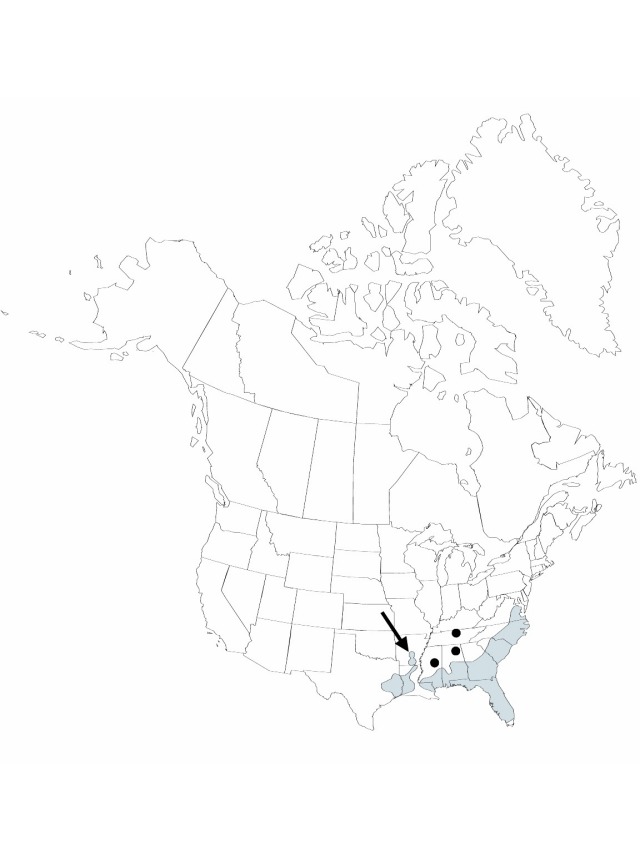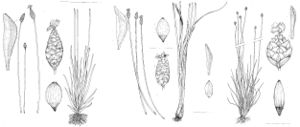Difference between revisions of "Xyris ambigua"
Enum. Pl. 4: 13. 1843.
FNA>Volume Importer |
FNA>Volume Importer |
(No difference)
| |
Revision as of 19:02, 24 September 2019
Herbs, perennial, cespitose or solitary, 30–100 cm. Leaves in broad or narrow fans, (5–)10–40(–50) cm; sheath base tan, straw-colored, or pale pink; blade pale or olive green, linear-triangular, (2–)3–7(–10) mm wide, smooth or slightly papillate, margins smooth to minutely scabrous or papillate. Inflorescences: scape sheaths much exceeded by leaves; scapes linear, rarely flexuous, terete or nearly terete, 1–1.5 mm wide, distally usually 2-ribbed, sometimes with additional ribs; spikes ovoid to ellipsoid, lanceoloid, or cylindric, 10–20(–30) mm; fertile bracts 5–8 mm, margins entire, apex rounded. Flowers: lateral sepals included, dark brown, strongly curved, 4–7 mm, keel firm, ciliate, petals unfolding in morning, blade obovate, 10 mm; staminodes bearded. Seeds translucent, ovoid to ellipsoid, 0.5–0.6 mm, finely multiribbed and cross ribbed. 2n = 18.
Phenology: Flowering late spring–fall (all year south).
Habitat: Acid, sandy, moist pine or oak savanna, pine flatwoods, pond shores, ditches, bogs
Elevation: 0–300 m
Distribution

Ala., Ark., Fla., Ga., La., Miss., N.C., S.C., Tenn., Tex., Va., Mexico, West Indies (Cuba), Mexico, Central America (Belize, Honduras, Nicaragua).
Discussion
Xyris ambigua is one of the more widespread and weedy of xyrids, frequently invading disturbed moist, sandy areas. It is also one of the most variable in habit and apparently forms intermediates with X. stricta and X. torta.
Selected References
None.
